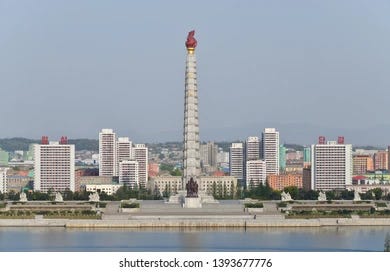The Juche idea, the central concept of Korean socialist ideology, was formulated by Kim Il Sung, the historic leader of the Korean Revolution. Kim presented its initial formulation at the Meeting of Leading Personnel of the Young Communist League and the Anti-Imperialist Youth League, held in Kalun in June 1930. Kim developed the idea in the context of the practical experience of struggle during the next fifty years. The formulation of the idea was updated in a manifesto written by Kim Jong Il, “On the Juche Idea: Treatise Sent to the National Seminar on the Juche Idea Held to Mark the 70th Birthday of the Great Leader Comrade Kim Il Sung, March 31, 1982.” In today´s commentary, I continued with my review of the March 31, 1982 document written by Kim Jong Il .
In “On the Juche idea,” Kim maintains that central to the revolutionary movement is the consciousness of the people. Above all, the peoples must have “consciousness of indep…




